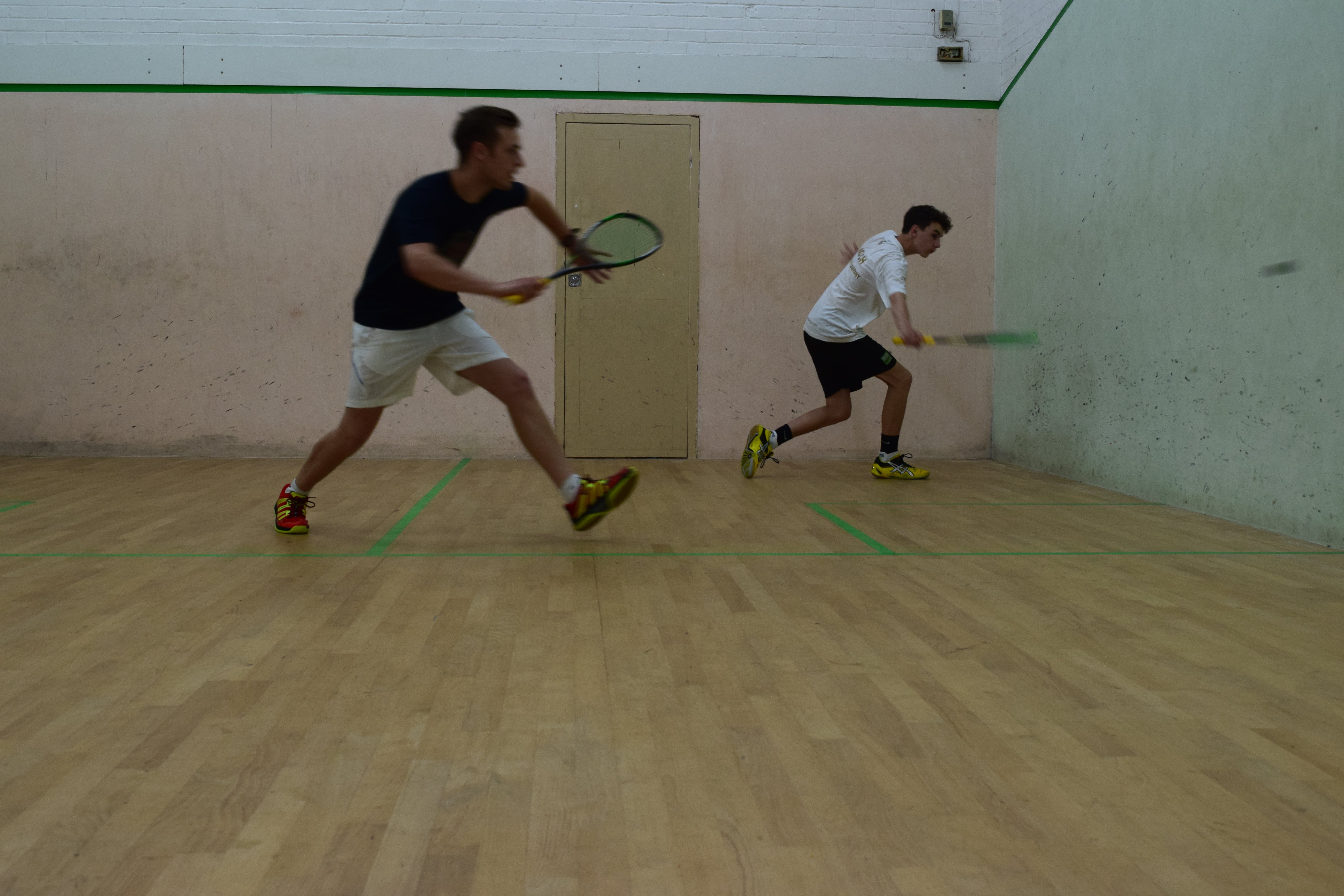It’s so important you develop deception and/or disguise as part of your game. If your opponent is always fairly comfortable with what you are going to do, they will always feel confident and calm even if your shots move them around the court. What causes a player to become uncomfortable and creates mental pressure is leaving them guessing about which corner you will play your next shot to.
What are deception and disguise?
People use these words in different ways sometimes in squash, so to clarify, in this instance deception means positioning your body or racket in such a way that someone is completely unsure of what shot you are going to play. Our definition of disguise is pretending to specifically play one shot when in fact you are going to play another, e.g. having a high racket and pretending to play a hard drive shot when you play a drop.
The long game: creating doubt, disrupting rhythm and seizing control
Even if the deception doesn’t result in a winning shot or even a shot which puts your opponent under a great deal of pressure, it’s still a warning to them and will almost certainly sit uncomfortably in the back of their mind. Let’s say for example you play a straight drop from the back of the court after lining up as if you were going to play a straight drive (or even just out of the blue when your opponent is expecting another straight drive because there’s been a series of straight drives or you’ve almost always picked that shot). Even if your opponent gets the drop back, they will be more wary next time you are in the back corner as they know you might well go for the straight drop, as well as the more typical choice of a long shot. With this in mind, watch to see if they move higher up the court than normal. This is a very common, instinctive move and it leaves a bit more of a gap for you to play a length shot into at the back of the court, which makes your length shot more dangerous. They may then become frustrated when the drive is played and catches them out, which can cause further frustration and lead to them dropping deeper again if they don’t keep their composure. Once that process has started in your head, you have them. If you can keep creating situations like this from all over the court through simple shot rotations – drops and drives or boasts and drives – you can really exert pressure on their mind. They will be forced to react to whatever you do, making it hard for them to take control of the game.
When players are uncertain of what shot they will face, they can resort to over-anticipating, guessing and making rash decisions. Not all players will but it’s worth testing your opponent’s defences for weaknesses, and seeing if they can handle the mental strain of facing deceptive shots. Additionally, if they are unable to anticipate your shot they won’t be able to start moving before you hit the ball and so will have to rush towards the ball quickly after you’ve played it and thereby waste energy. With this, the mental pressure starts to become physical too.
The easiest people to play against
There is nothing easier than playing against someone who is predictable, even if they are very accurate. In your mind, you know exactly where you need to move to and you can establish a rhythm, which means you will feel comfortable and at ease, even if you are having to work very hard. You need to do all you can to ensure that people aren’t thinking like this when they play you! If instead you move into the back corner and your opponent doesn’t know whether you are likely to play a drive or a drop, or better, starts guessing, then you have a major advantage.
Even if you don’t get the winning shot or set yourself up for a winning shot or create pressure, the deceptive or disguised shot will still play a very important role both mentally and physically. It creates doubt, disrupts rhythm and takes its toll on your opponent’s fitness. If you can tire your opponent both physically and mentally, you can defeat them.

Leave a Reply